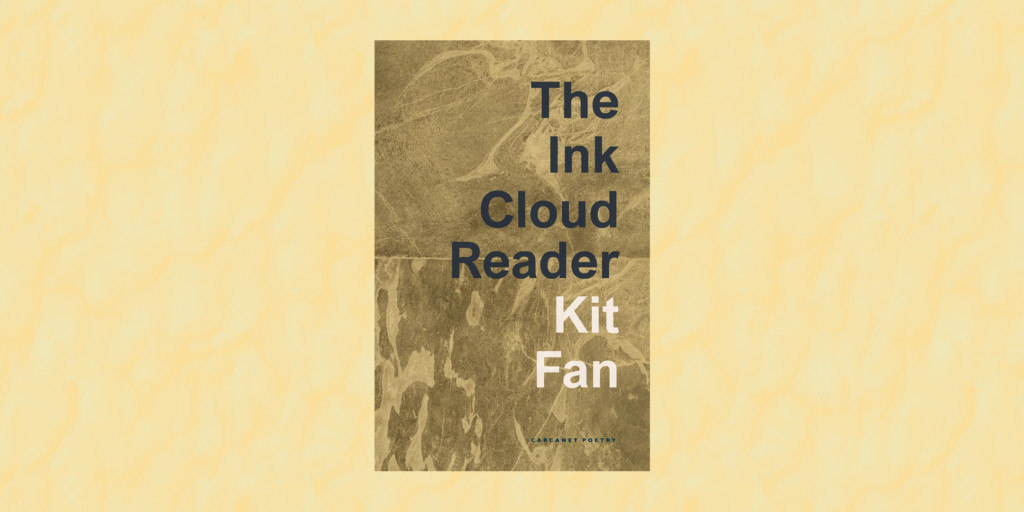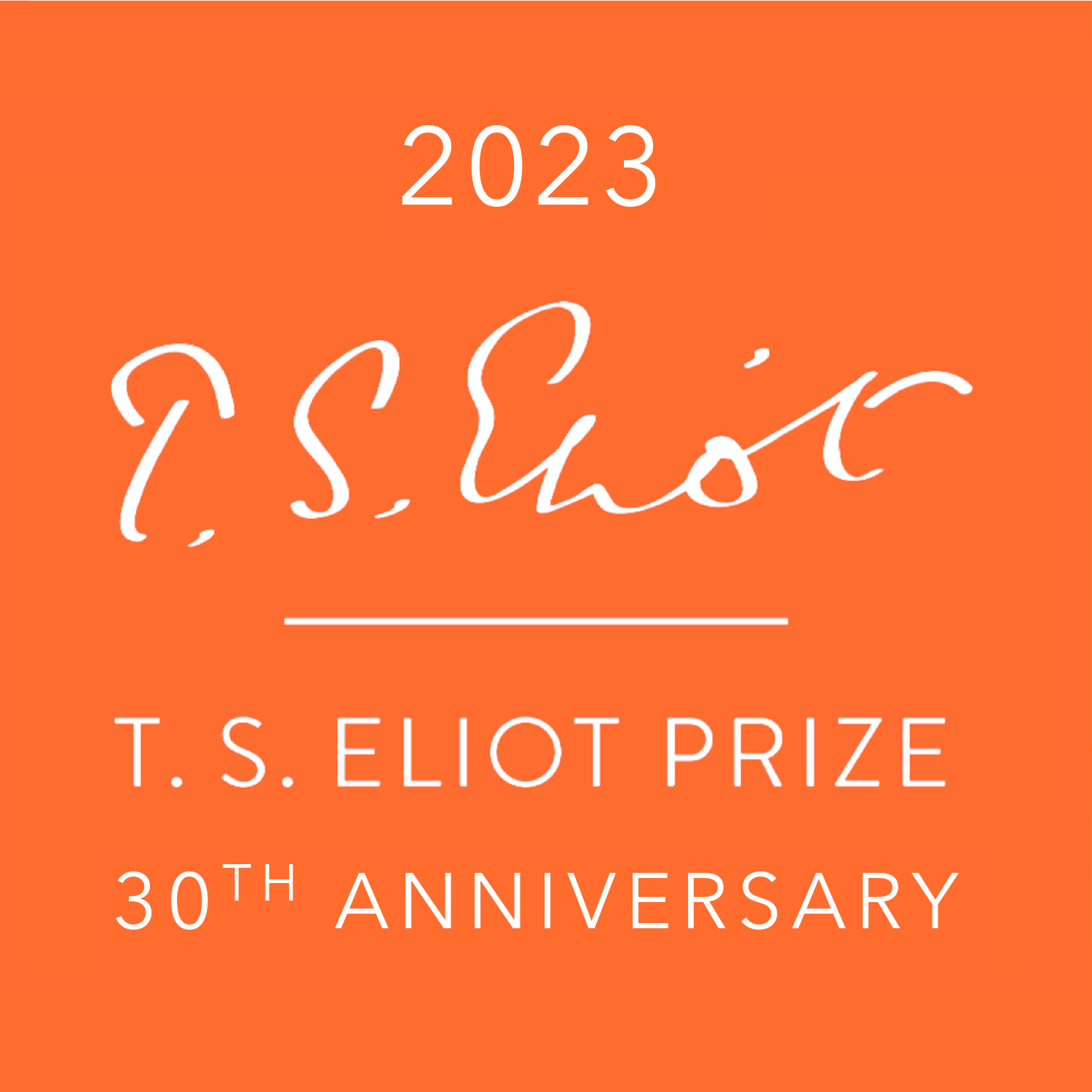Welcome to our T.S. Eliot Prize 2023 Writers’ Notes. This year, alongside the usual Readers’ Notes, the T.S. Eliot Prize and the Poetry School are collaborating on a set of Writers’ Notes for the shortlisted collections. These are educational resources for poets looking to develop their practice and learn from some of contemporary poetry’s most exciting and accomplished voices. Here’s Kit Fan on his collection, The Ink Cloud Reader.
I’d be lying to you if I said there is no mystery around writing poetry. More often than not, I don’t know where a poem comes from and why it stains the page with ink. Sometimes, it plays hide-and-seek with me for months. Another time it trespasses on my home turf like some Gabriel arriving at Mary’s door with a potent message. I should feel blessed, to be able to conjure up words from air, to put pen to paper. There are times a poem is commissioned – or I commission one myself – but mostly when a poem arrives, announced or unannounced, I feel interrupted, bothered and bewildered, as if I’ve been side-tracked by an itch. If I scratch it, it worsens and if I don’t, I go a little crazy.
Most of the time I’m not writing poetry. I work full-time in a medical school and draft regulations, codes of practices, policies, standard operating procedures. I crisis-manage, trouble-shoot, and fight Excel spreadsheet with Excel spreadsheet. Poetry is my second life, sometimes my third or even fourth. I don’t prioritise poetry and can’t imagine being a full-time poet, whatever that means. From early on, I made a counter-Faustian pact: if I don’t ask poetry for everything, it can’t ask everything of me.
A sound or form or word emerges, sometimes all at once. Then, I see the poem on the page before it’s written.
The Interruption
When interrupted by an arriving poem, I usually ignore it at first because it looks too good to be true. I wait and do other urgent or ordinary things and after a while, if the poem insists on its continuing arrival, I will commit to remembering its departing footsteps. I toy with the memory of the threatened interruption in my mind for days. I don’t write anything down as often there isn’t time. Even when there is, I don’t rush towards it, as not all loves can be love-at-first-sight (and we all know the common ending of love-at-first-sight). As you’d expect, memories usually fade, and I forget the faces of these unborn poems.
Occasionally, there are few stainless-steel memory-scraps that are anti-rust. I hold these stubborn materials in my mind until they take shape. A sound or form or word emerges, sometimes all at once. Then, I see the poem on the page before it’s written. By ‘seeing’, I mean I’ve an inkling what the poem wants to be seen as and where from.
For example, ‘Yew’ in The Ink Cloud Reader charged at me aggressively when my beloved fell mortally ill in 2021. A haematologist-friend told me that docetaxel, the powerful chemotherapy drug he was being treated with, is made from the needles of yew trees. During the lockdown, cancer patients were not allowed to be accompanied to the treatment room. In lieu of my presence, I wrote a poem or two to keep him company each time. ‘Yew’ appeared in a frenzy. The word attacked me. Instead of fighting it, I let it sink in me and seep into my beloved’s body. Like most poets who worship control, I sought to tame the drug into the form of a sonnet, hoping that rhymes would provide a ground for recovery.
I like to break rhymes as much as rhyme. Something odd happens when you borrow from a form and tease it to the point of breaking.
Teasing the Form
I like to break rhymes as much as rhyme. Something odd happens when you borrow from a form and tease it to the point of breaking. The more radically an object is broken, the more memorable it can become. The Japanese call it wabi-sabi and I call it poetry. ‘The imperfect is our paradise’, wrote Wallace Stevens. As the poems coalesced into a book, I was struck by how often I’d delayed and misplayed rhymes and how the many different poetic forms I conjured ran wild and danced on the page with a restless energy I don’t recognise.
If a poem is a mirror to the world, a book of poems is a hall of mirrors, a palace of tricks and ambiguity. Writing with a sense of crisis in my life at home and in my native Hong Kong you might think questions of form would not be uppermost, but the poems in my hall of mirrors surprised me by taking so many visual, metrical and generic forms. My hunch is that our need for the form is related to the need for survival. And for the possibility of transformation. If I’ve spoken too heavily in metaphors here, it’s not to hide from the spotlight, but also because I’m experienced enough to rely on the comfort metaphors provide.
Whatever you want poetry to be, it’s unlikely to involve shortcuts.
Beyond Impossibility
In many ways, a book is a metaphor. It encapsulates a particular voice from a particular place at a particular moment in time, and if we are lucky, all these particularities will dissolve and become new ingredients for the reader. Who knows what remains with the reader? Reading is a nebulous business, especially when it comes to poetry. Readers can open a book of poems anywhere they like but if the poet is generous enough to leave good crumbs on the path, hopefully the reader will follow and find the gingerbread house.
We live a world of shortcuts – tips, tricks, good practices, lessons learned. I’ve picked up good tips online to clean a burned saucepan, learned a new trick to find cheaper flight tickets, promoted empathy as a good medical practice, and conducted a lesson-learned-styled review to prevent an administrative error from reoccurring. Do similar shortcuts apply to poetry? I’m not sure.
Whatever you want poetry to be, it’s unlikely to involve shortcuts. I can learn a beautiful poem by heart – like George Herbert’s ‘Love bade me welcome, yet my soul drew back’ or Louise Glück’s ‘At the end of my suffering / there was a door’ – but I don’t want to write like Herbert or Glück or anyone else. I don’t even want to write like Kit Fan. It’s impossible, I know, for Kit Fan not to write like Kit Fan. Or is it? ‘I dwell in possibility / A fairer house than prose’, Emily Dickinson says of poetry, and her line makes us both register and go beyond ‘impossibility’.
Kit Fan‘s The Ink Cloud Reader (Carcanet) is shortlisted for the T.S. Eliot Prize 2023. Order your copy here.

Kit Fan is a poet, novelist and critic. He was born and educated in Hong Kong before moving to the UK at 21. His debut novel is Diamond Hill (2021). His first book of poems, Paper Scissors Stone (2011), won the inaugural HKU International Poetry Prize. As Slow As Possible (2018) was a Poetry Book Society Recommendation and one of the Irish Times Books of the Year. His third poetry collection The Ink Cloud Reader (2023), which is shortlisted for the Forward Prize.


Add your Reply
You must be logged in to post a comment.